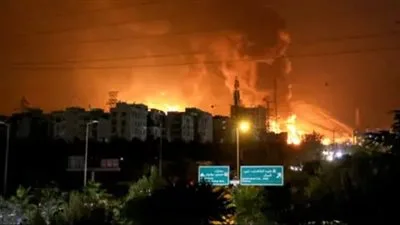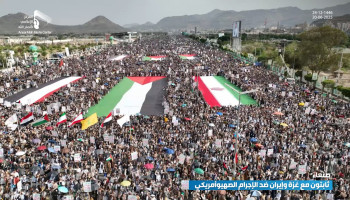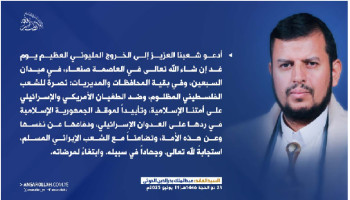Ambassador Abdullah Al-Sabri at the Ministry of Foreign Affairs in Sana’a confirmed that the United States gave the green light to the Zionist entity to launch its brutal aggression against the Islamic Republic of Iran, which began early last Friday.
Al-Sabri stated that the attack aims to pressure Iran into returning to negotiations under unfair and coercive conditions.
He emphasized that the United States is not merely a bystander, but a direct partner in the aggression, providing intelligence, logistical support, and enabling the Zionist regime to carry out its strikes to impose a nuclear deal favorable to Washington.
Al-Sabri explained that the US employs a "force for peace" policy, used in President Donald Trump's strategy. He said this reflects Washington’s desire to impose political realities on Tehran through military escalation rather than through equal and fair negotiations.
He noted that the US exploited regional security tensions to push for a nuclear agreement that serves American interests.
In response to the Israeli attack, Al-Sabri said, Iran took measured and strategic military actions, launching precise, calculated strikes on key Zionist targets as part of a broader deterrence strategy, firmly rejecting any political negotiations before achieving results on the ground.
He stressed that Iran has the legal and moral right to defend itself against any threat, highlighting the strong popular support within the country despite attempts by the enemy to destabilize its internal front.
Al-Sabri warned that US and Western involvement in the aggression could expand the conflict across the region, particularly in Lebanon, Iraq, and Syria, where resistance forces maintain an active presence.
He further indicated that Iraq is on the verge of escalation, with the Popular Mobilization Forces (PMF) potentially resuming their resistance operations.
Al-Sabri cautioned that continued military operations would drive the Zionist entity deeper into crisis, citing a collapse in tourism, disrupted maritime traffic, declining market confidence, and the shutdown of Umm al-Rashrash port due to Yemeni missile operations, which together compound pressure on Netanyahu’s embattled government.







